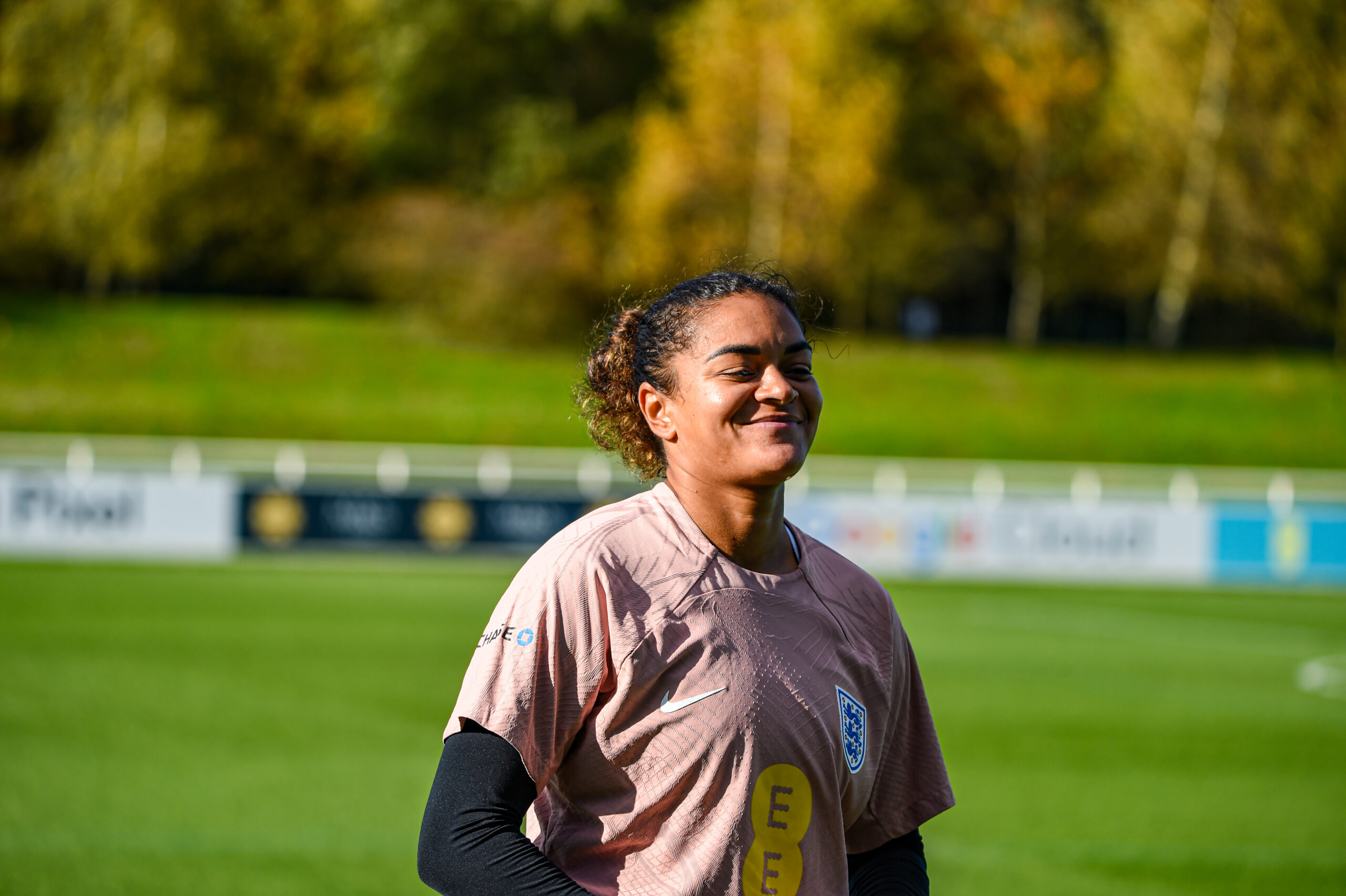For white players, underperformance is seen as part of the game. For players of colour, it can be treated as proof that they never truly belonged. In women’s football, there are persisting race issues which continue to not be spoken about.
Football has always had a race problem. FIFA was aware of this back in 2013, when it launched its anti-racism task force, but three years later, it was disbanded, claiming its mission had been ‘completely fulfilled’.
One might interpret this statement as meaning players were no longer being racially discriminated against or, at the very least, were equipped with sufficient resources or training to minimise its impact.
However, we only need to reflect on the treatment of players of colour at the recent UEFA European Women’s Championship to conclude that this is not the case. Instead, several incidents highlighted that there are persisting race issues in the women’s game.
Safia Middleton-Patel, for example, became the first player of South Asian heritage to feature at the UEFA Women’s Euros. Yet her milestone moment received only limited media coverage, falling far short of the attention such a historic achievement warranted. Similarly, Michelle Agymemang, who arguably was one of the most instrumental players for the Lionesses on their journey to the Finals, was conspicuously absent from the Royal Family’s public good luck message to the team. The young star was also left off several other social media posts. This omission did not go unnoticed.
Although the incident this article will mainly focus on, is the online abuse directed at England defender Jess Carter, which forced her to take ‘a step back from social media’. Sky Sports revealed that analysis of social media posts during the match against Sweden confirmed Carter was the England player subjected to the most negativity.
In her statement she said,
“Whilst I feel every fan is entitled to their opinion on performance and results I don’t agree or think it’s ok to target someone’s appearance or race.”
This kind of abuse is not isolated. Historically, players of colour have often had to carry an unfair burden when representing their countries, where performance is not judged solely on merit, but filtered through the lens of race.
Their identity becomes insepararble from their ability, and they are held to a different standard. In these moments, the privilege of wearing the national badge begins to feel conditional, offered as long as they exceed expectations, remain silent, and make no mistakes. For white players, underperformance is seen as part of the game. For players of colour, it can be treated as proof they they never truly belonged.
As social media has grown, the nature of this abuse for athletes have evolved. Players are now exposed to a 24/7 digital criticism, making the effects of racism not only persistent but also inescapably public.
Scholars Dr Daniel Kilvington and Dr John Price concluded in a 2016 paper:
“Social media provides a platform whereby football followers, as well as players, can publicly voice their true thoughts and opinions in a perceived safe, protected and private space” resulting in “conversations, remarks and expressions once held for backstage spaces” being “transported with frontstage spaces”
In October 2023 Ofcom enforced the legislation which made the Online Safety Act a law, holding social media platforms responsible for identifying and removing harmful content. Evidently, this has not been sufficient, as digital spaces continue to become a breeding ground for performative bravery where people feel untouchable, unaccountable and justified in voicing views that are socially unacceptable in any real-world context.
As Sports England chair Chris Boardman writes in his open letter to Ofcom,
“The abuse faced by these athletes not only causes personal harm but also sends a damaging message to the next generation of girls who aspire to follow in their footsteps”
Highlighting the wider impact the online threats have in terms of progress made in encouraging diversity and inclusion in sports. Therefore, emphasising a dire need to work with big tech companies and break these toxic cycles, where slogans like ‘zero tolerance’ or symbolic gestures like taking the knee are recycled but not a legal and cultural imperative.
This article does not deny the fact that there has been progress made on the stands, Carter herself said the fans were incredible throughout the tournament, but we would be naive in thinking football has entered a new ‘postracial’ era where missions of antiracism are ‘completely fulfilled’. There are certainly persisting race issues in women’s football.
Allowing these issues to go lightly would be normalising a toxic culture in football and in effect jeopardise all the progress that has been made over recent years.
Take a look at these sites for more information:
Reporting Statistics | Kick It Out
Chair writes to Ofcom about online abuse of women’s footballers | Sport England



